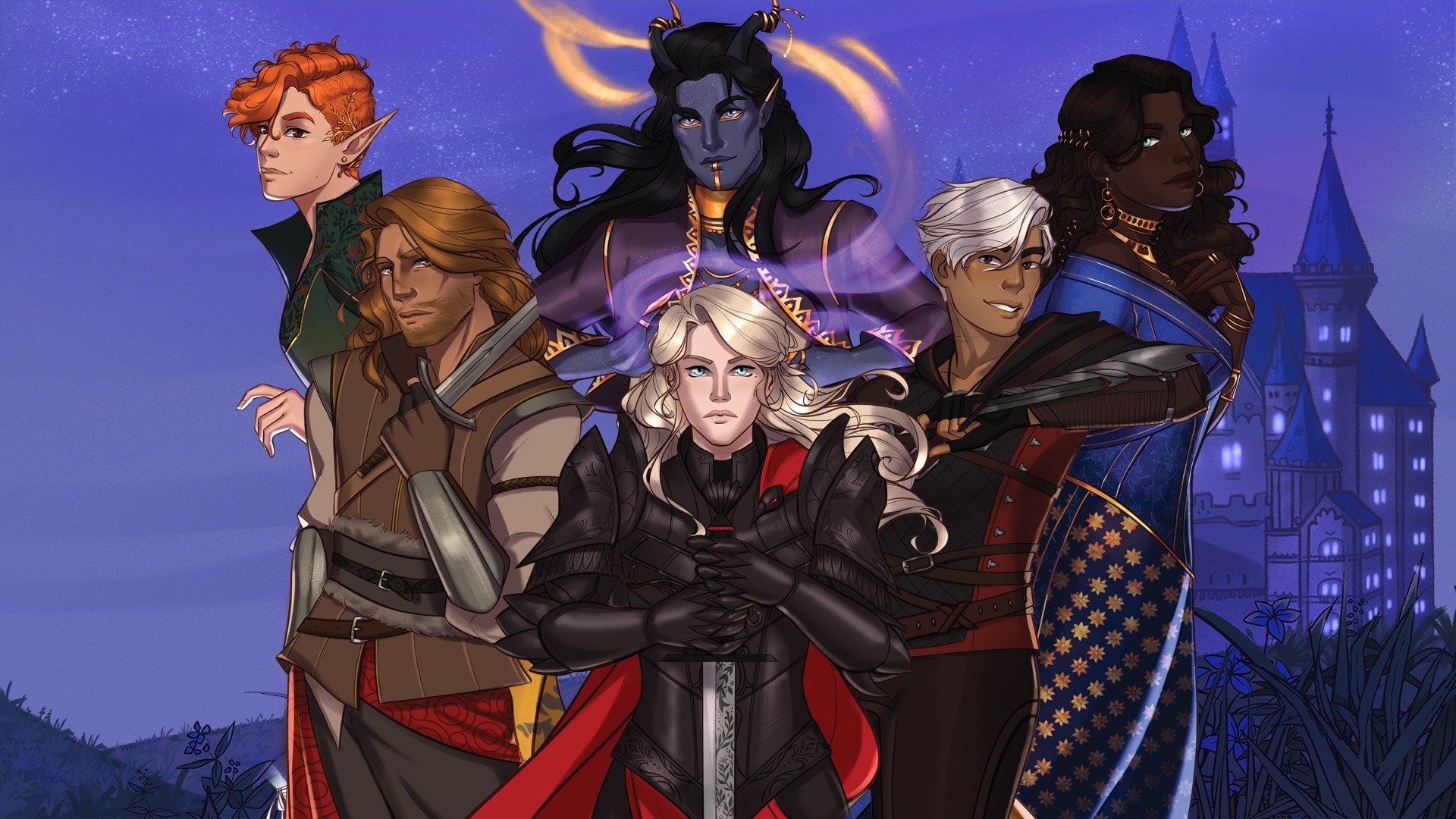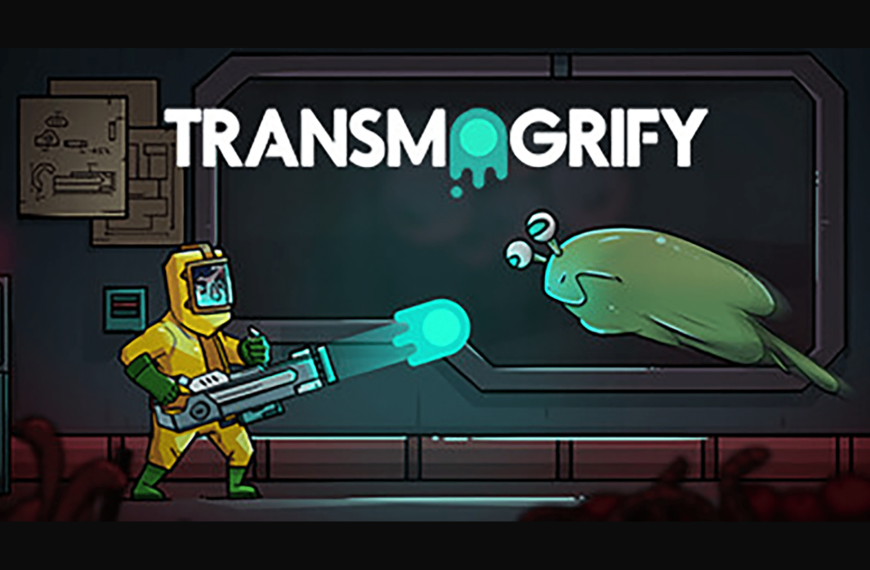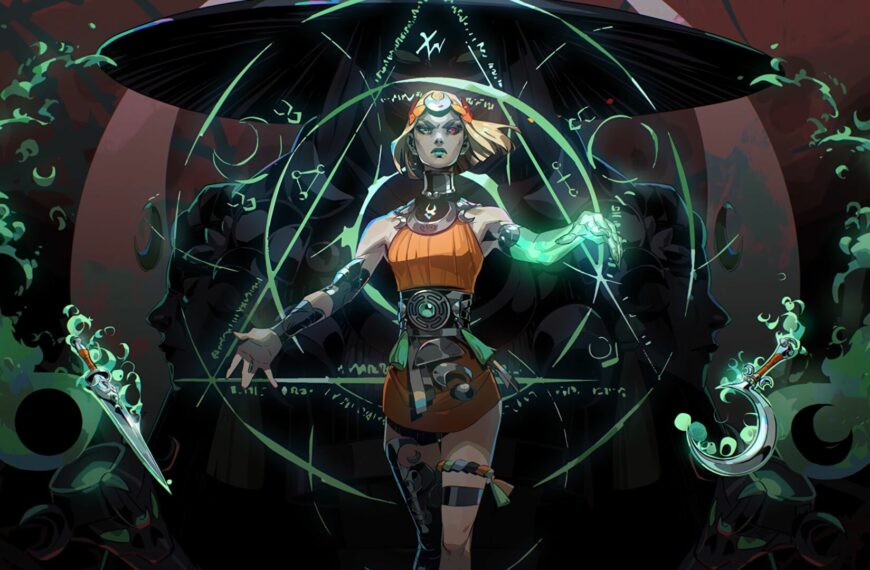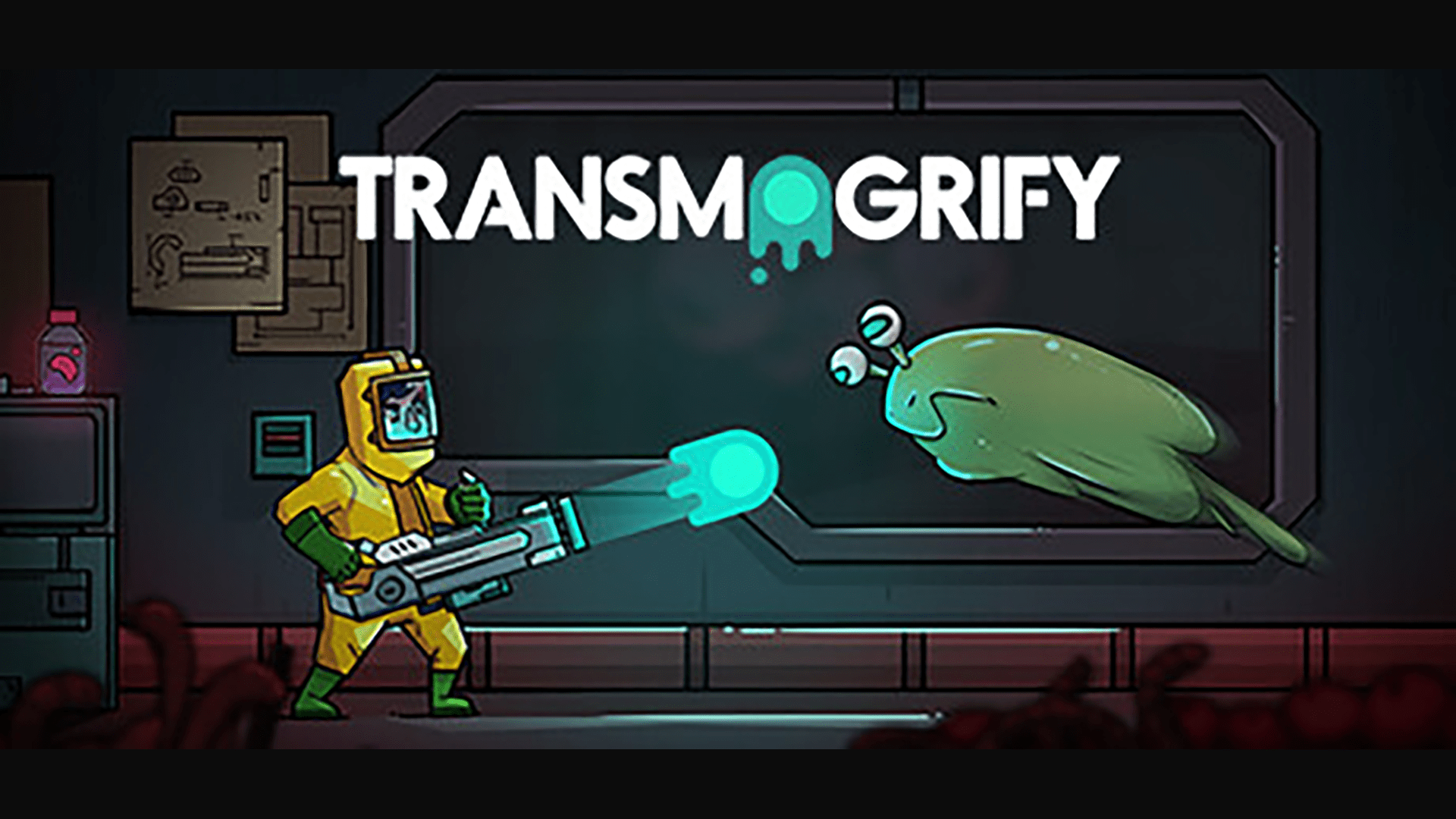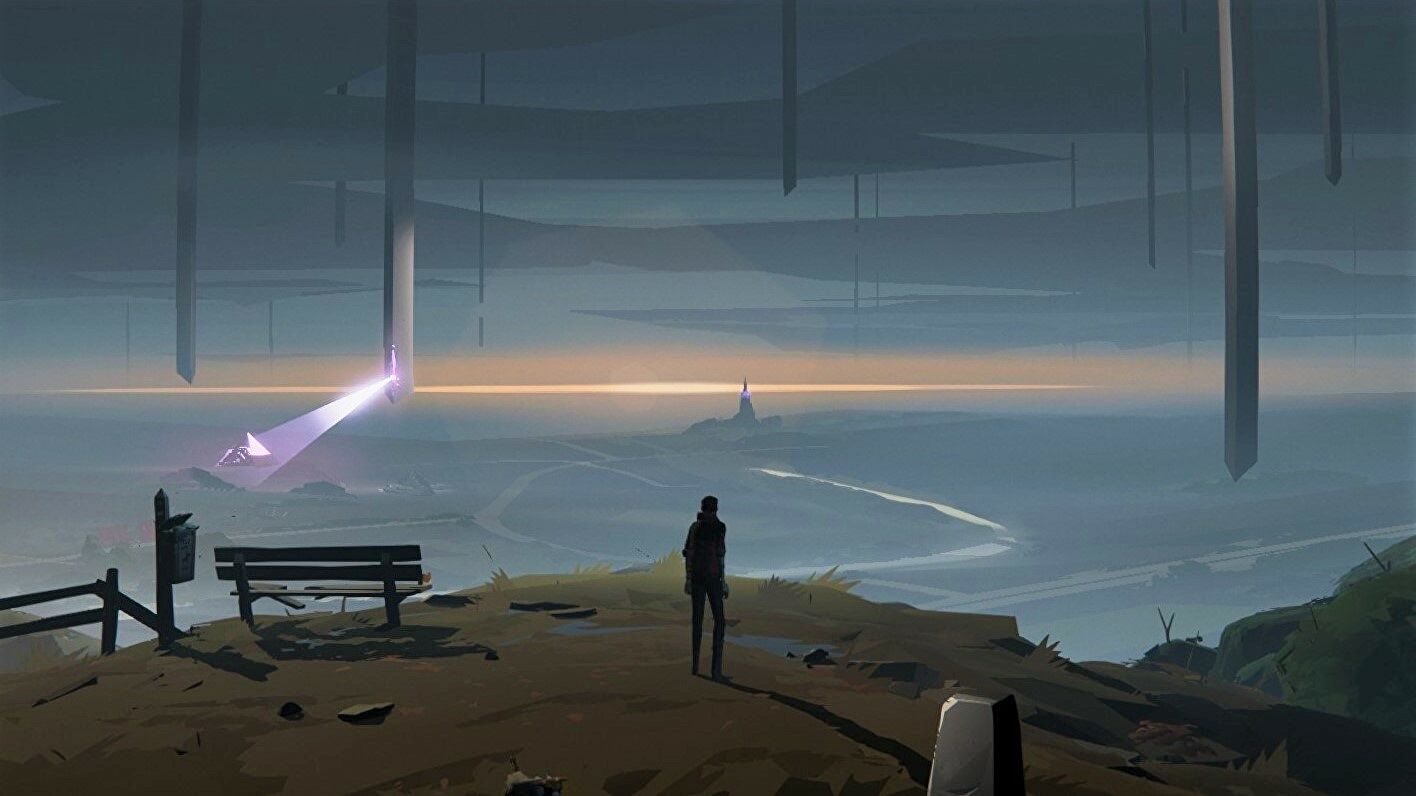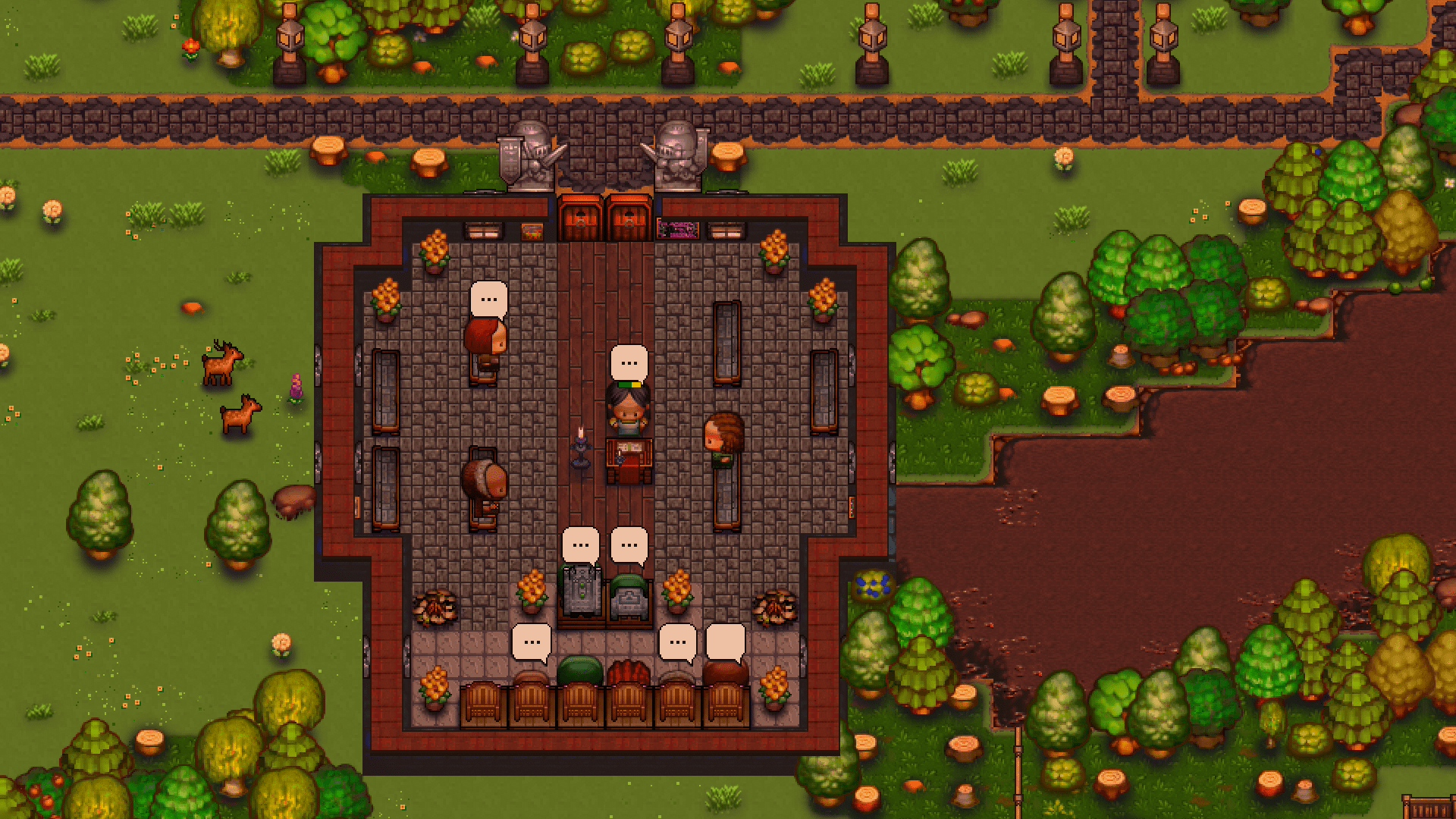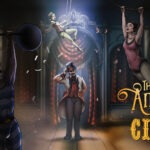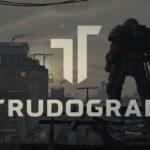Despite my love of novels and my love of video game narratives, I’ve barely ever actually dipped my toes into the Visual Novel genre. For one thing, I have very limited interest in Dating Sims, which are heavily prevalent in Visual Novels – and indeed, romance is a prominent feature of Errant Kingdom. For another, I’m usually not interested in playing video games that are so close to physical books. I have physical books I can read if I want to read physical books. And yet something about Errant Kingdom might have sold me on the premise. Or it could just be that I’ve been toying with the idea of tracking down the original Fate/ Visual Novel. Who knows?
The kingdom of Novus is in an age of prosperity, with a wise king and queen guiding it into the future. The Kingdom of Novus is on the brink of total revolution. Or perhaps the truth of the matter is somewhere in between. Determining the actual reality of the situation and tipping the balance one way or the other. This is the central theme of Errant Kingdom.
Errant Kingdom is divided into chapters. These chapters have been released episodically, with the final chapter, Chapter 6, still in development. However, Lunaris Games have left update logs and other news posts if you’re curious about the status of the project. I have a suspicion that the final chapter—as well as some promised features—suffered delays from the current global situation, but I can’t say for certain.
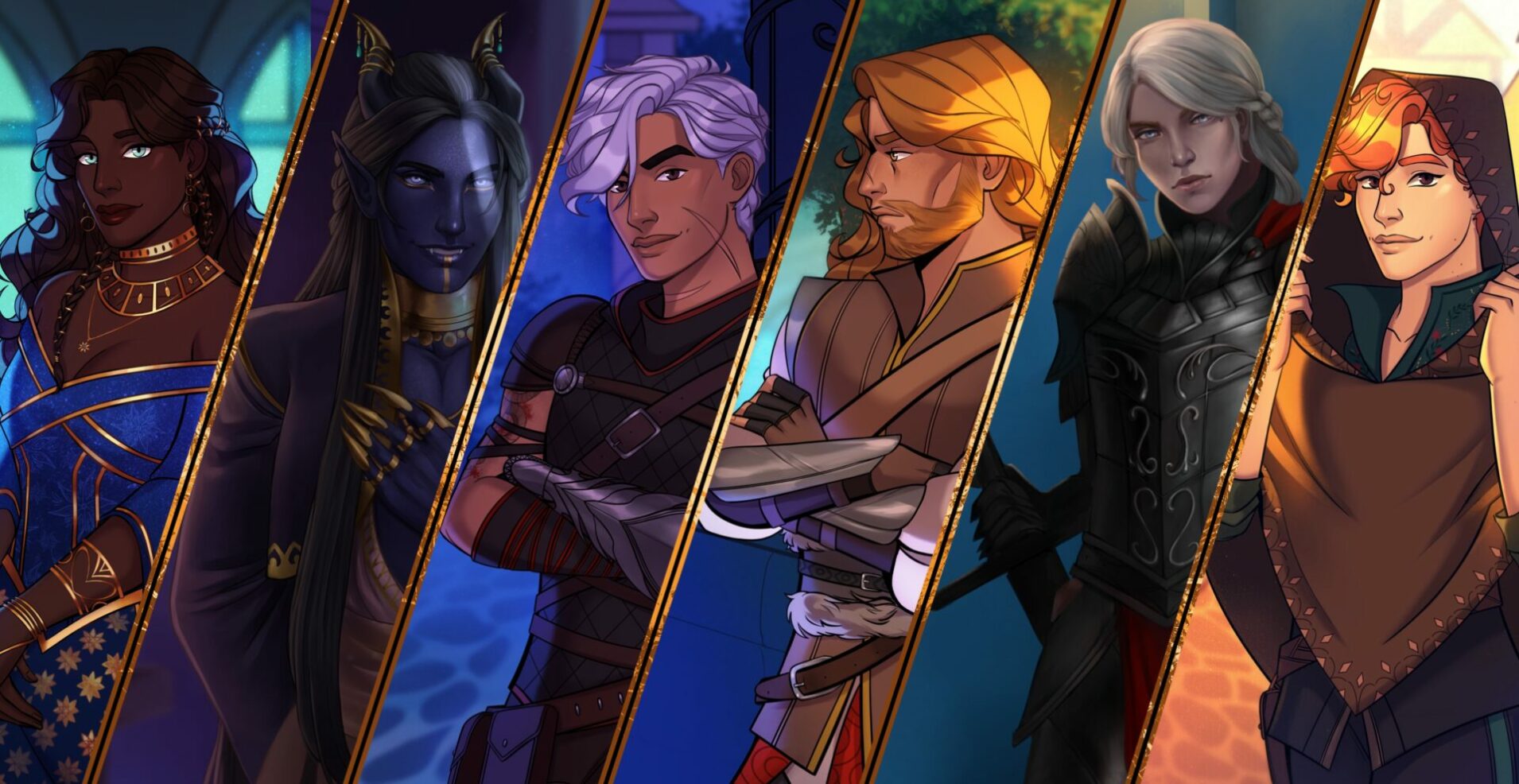
Their Words are of Peace
Visual Novels are a rather diverse genre, ranging from being a hair’s breadth from a point-and-click adventure, like the Ace Attorney franchise, to being closer to a choose-your-own-adventure book. Errant Kingdom is definitely on the latter side of that spectrum. You do very little beside read and progress the text to the next thing to read. Your interactions come in the form of dialogue options, which affects your relationships with the various members of the cast, as well as your stats.
I was rather surprised when I first started the game. Not because of the ability to choose my name and pronouns, though I appreciated those options. No, I was surprised because after that, I was presented between three different characters I could play as. A foreign Knight lent to Novus. An Ambassador attempting to maintain the tenuous alliance. And the Nomad, mingling amongst the common folk. It’s fairly ubiquitous in the Visual Novel genre to have multiple endings and different detailed routes to those endings. But I was not expecting a character selection, promising that the full story required more than one pair of eyes and ears to unveil.
Equally intriguing was when I checked the settings menu. While all the actual settings there are fairly standard: various audio levels, text speed, graphical fidelity, etc. There was also a section defining a number of icons and what they mean. At some points throughout the game, you will be presented with the ability to make a decision. The icons tell you what those decisions represent. Your Kindness. Your Honor. Your Cunning. And how iron your fist can be. And, of course, your ability to flirt with and potentially date one or more characters. Or platonically flirt if you’re into that. Again, options I appreciated, not necessarily because I intended to use them myself (except perhaps the platonic flirting), but because I knew others would find these features useful to them.
Unfortunately, the currently unreleased final chapter means that your stats and romantic interests do not go anywhere at the moment.
Also Read
Transmogrify PC Review: The Best Way To Defeat An Enemy
A video game protagonist wakes up in an on-fire science lab with nothing but an AI and a high-tech gun to…
Defy the Gods as a Witchy Moon Goddess in Hades 2
Greek-mythology-themed roguelike Hades is getting a sequel, but developer Supergiant has kept the details scant beyond a Hades 2 reveal trailer…
As stated, Errant Kingdom is very text heavy. The game is in a first-person narration, with your chosen character describing events and other characters from their own perspective. The Knight, for example, has much kinder things to say in their initial meeting with the steely Knight Commander than the Ambassador does, for example. There’s also an interesting dissonance between the narration and the dialogue. Your character will generally give any characters they meet the respect they deserve (or politely choose to hold their tongue, as the case may be), but the narration is considerably more casual and relaxed.
The three characters are all observing the same events from their own perspectives. The King and Queen were targeted for an assassination. While the attempt failed, the assassin themself has escaped. Their identity, motive, and possible client remain unknown. Learning the truth of these events involves digging into the bloody history of Novus itself. And there are indeed many mysteries. Why was the previous Knight Commander really dishonorably discharged one year ago? How does the local religion play into these events? What about the political treaties with another nearby kingdom? Each of the playable characters are in some way an outsider to Novus, and this lack of knowledge drives a large amount of the drama.
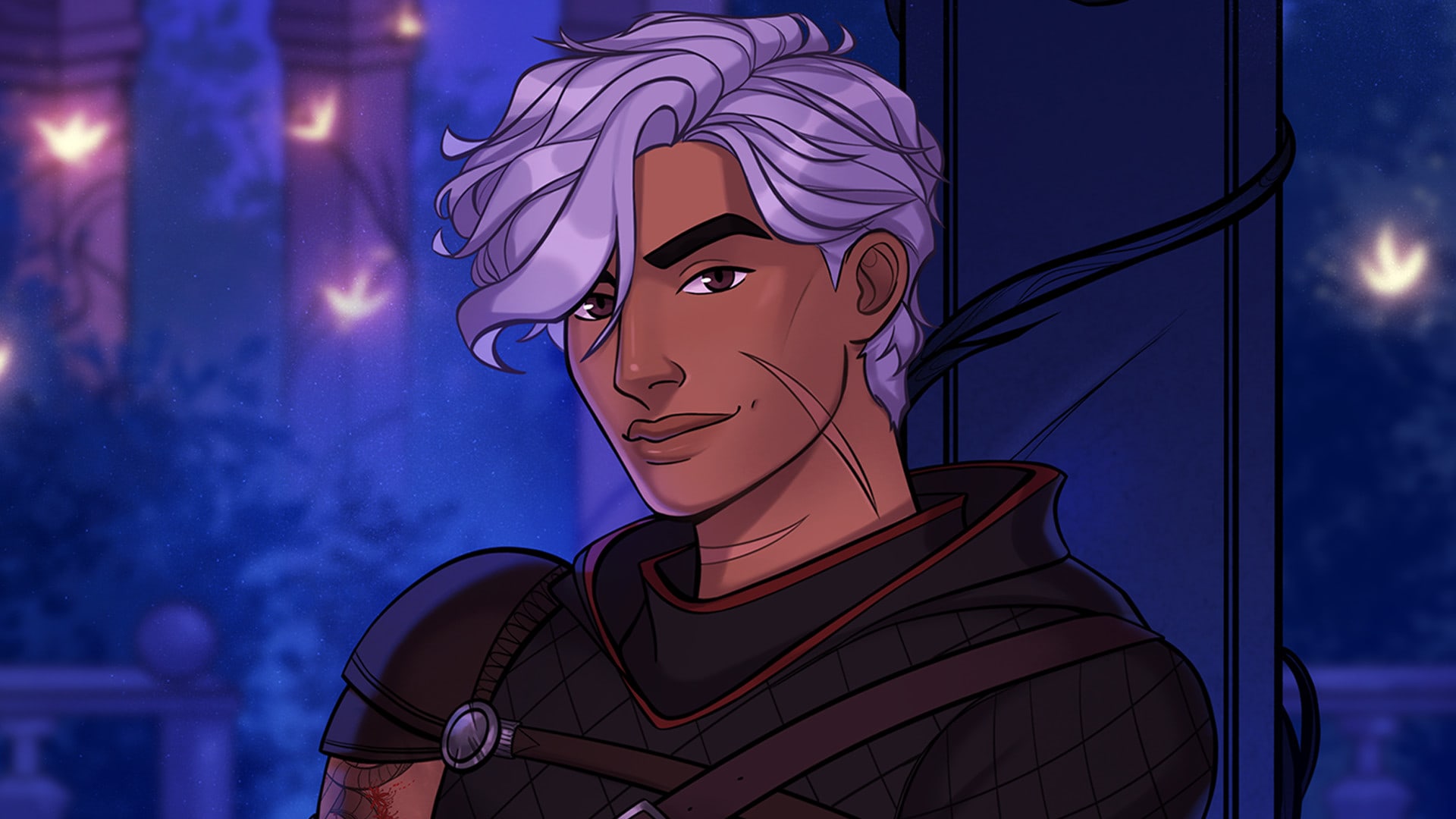
The story of the Kingdom of Novus feels a lot like the first act of an ancient Greek tragedy. It’s clear that something is about to go terribly, horribly, inconceivably wrong. Even the sheltered Knight doesn’t take long to see how precarious the kingdom’s situation truly is. But, unlike Greek tragedies, there is no chorus to explain and foreshadow or forewarn the oncoming storm. In some ways, providing this context is the job of the narration. But there are a great many mysteries woven tightly together at the heart of Novus, and this game does not operate on the same level of dramatic irony as those ancient plays. It creates a very different kind of tension. You can see the signs that the situation is nearing a boiling point, but no one route has all the pieces. You’re constantly trying your best to play catch-up with everyone else knowing that there is very little time to do so.
I think the Knight’s Prologue chapter is the best example of this. Each route has an introductory chapter, the Prologue, known as Chapter 0 for the game’s episodic release. This chapter is largely to introduce the plot regarding the assassination attempt and to introduce you to your chosen route’s primary cast. At one point in the Knight’s Prologue, the Demon Ambassador, who has lived for thousands of years, casually mentions seeing kingdoms rise and fall then turns to you and flat-out tells you that things are about to get worse.
There’s an underlying sense of humor to much of the game. Not in the sense that the game is a comedy, but a large number of characters have a sharp wit and a willingness to employ it. These brief jokes and moments of comedy help ease some of the tension caused by the central plot, allowing for natural cycles of tension and suspense.
There are some elements that are somewhat unpolished. Rough. On a handful of occasions, I realized that a character was supposed to be speaking, but their name tag did not show the way it does when a character talks. In one of these instances, their name was instead in the text box with their dialogue. I also had a text box fail to display my character’s pronouns, resulting in a missing word and odd spacing to accompany the word that wasn’t there.
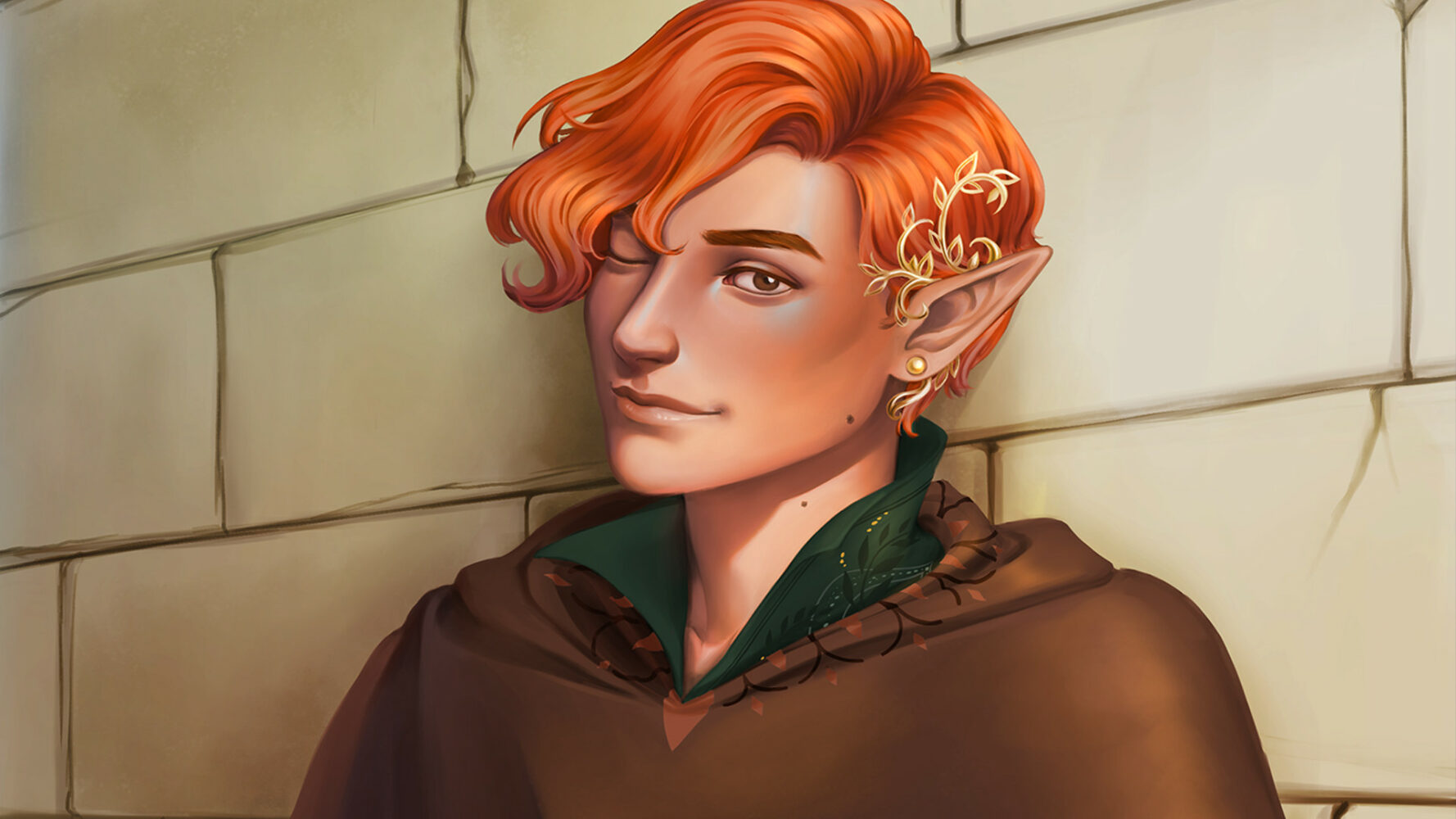
But the Hand is Strong
Of course, Errant Kingdom is not merely a novel. Characters have full-body images that show when you are speaking with them. There are backgrounds for different locations and times of day. Music, and, on rare occasions, sound effects. I might have preferred more sound effects, actually. It was rather jarring that I only ever heard one in the entirety of the Knight’s route.
The characters all have their own unique, detailed designs as well as a number of outfits that tell you a lot about each of them. They’re well designed and well-drawn, with excellent colors and rendering. However, there are some things that becomes clear if you’re looking for them. Characters generally only have a handful of poses, mostly shared between them. Certain details look rather similar between each character. The jawline comes to mind as the one I personally found most noticeable.
The painted-style CGs of the characters that you sometimes encounter during the game are all incredibly gorgeous. The existence of a gallery to view these pictures at any time you want was definitely to right call. That being said, each CG being shown off by a pan from the bottom to top at the exact same speed was a little repetitive, even though the images were all vastly different from each other.
There’s a volume slider for Voice Acting, but if any exists in the game then I never heard it.
The backgrounds are all detailed and very pretty, but seem stylistically detached from the character art. The styles don’t quite clash, but it’s a close thing. Several of the backgrounds also represent multiple locations. The streets of town with the well represents almost the entire capitol city. The castle itself is comprised of a library, a garden, the Archmage’s quarters, my own room, and a single hallway. Mostly that one hallway. Which is odd considering that there are times when entirely new backgrounds are used for scenes in a single chapter and then never again. Though I must give credit to the night and day variants of these locations for doing an excellent job of altering the lighting.
I’m somewhat disappointed by the fact that you choose who you end up with romantically instead of naturally ending up with a character through interactions over time, but I can understand why the decision was made from a design perspective.
The music is… alright. No, that’s not true. The music is better than that. But if, like me, you’ve spent any significant time on YouTube, you’re already well familiar with the musical ability of Kevin MacLeod. If you don’t know, MacLeod is a composer who has produced a great many pieces of royalty free music publicly available for use. However, despite the frankly absurd size of his musical library, most people only use a handful of his pieces. And I have heard several of the songs used by Errant Kingdom more times than I can count well before I booted up the game.
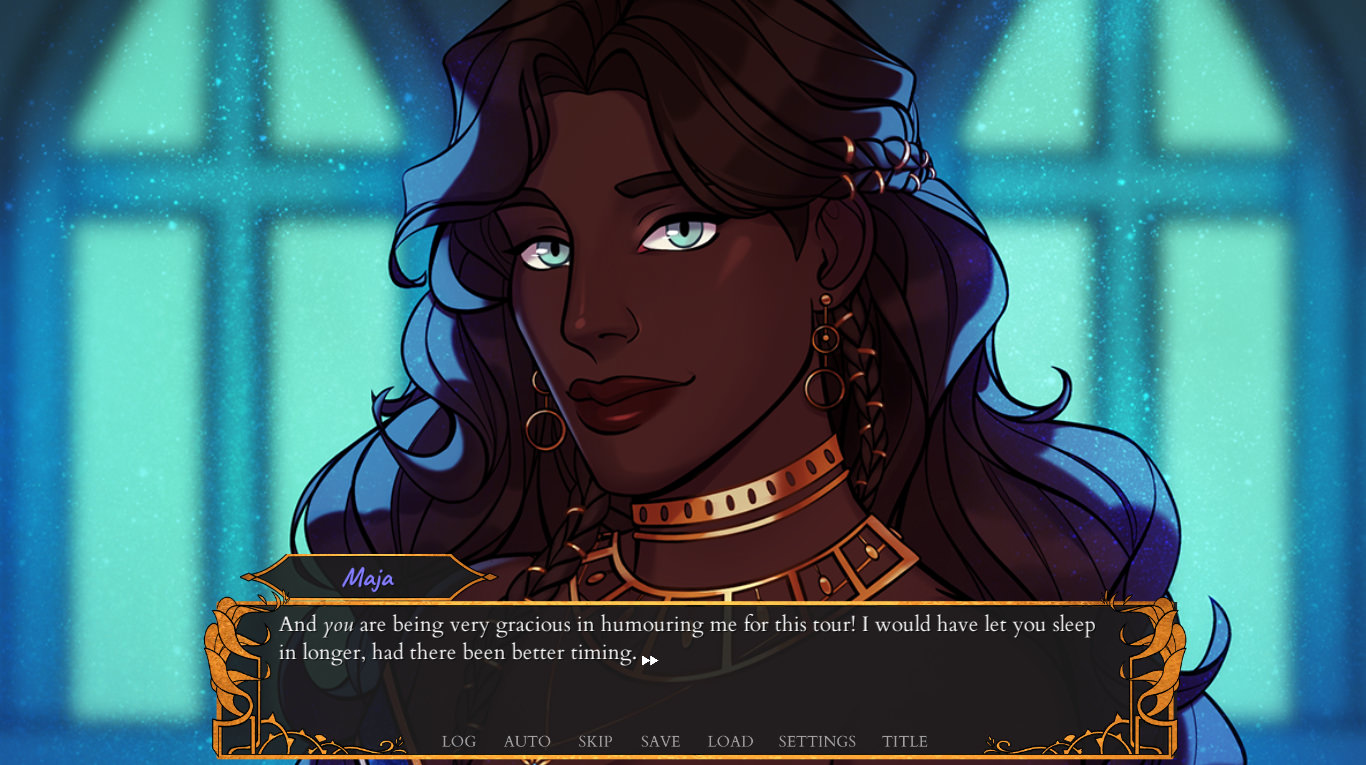
Conclusion
The errant Kingdom provides a firsthand look at history in the making. It’s a snapshot of a fictional country on the precipice of significant change. Experiencing that snapshot from three different perspectives, seeing the cast in different contexts, learning the secrets everyone is keeping and using that knowledge across different routes to flesh out your understanding of the world is really something else.
While I am disappointed by the fact that I can’t say anything about the ending until said ending actually releases, I am at the very least interested in the multitude of mysteries Lunaris Games presents in this title.
Our Rating
Gameplay
Art & Graphics
Narrative

